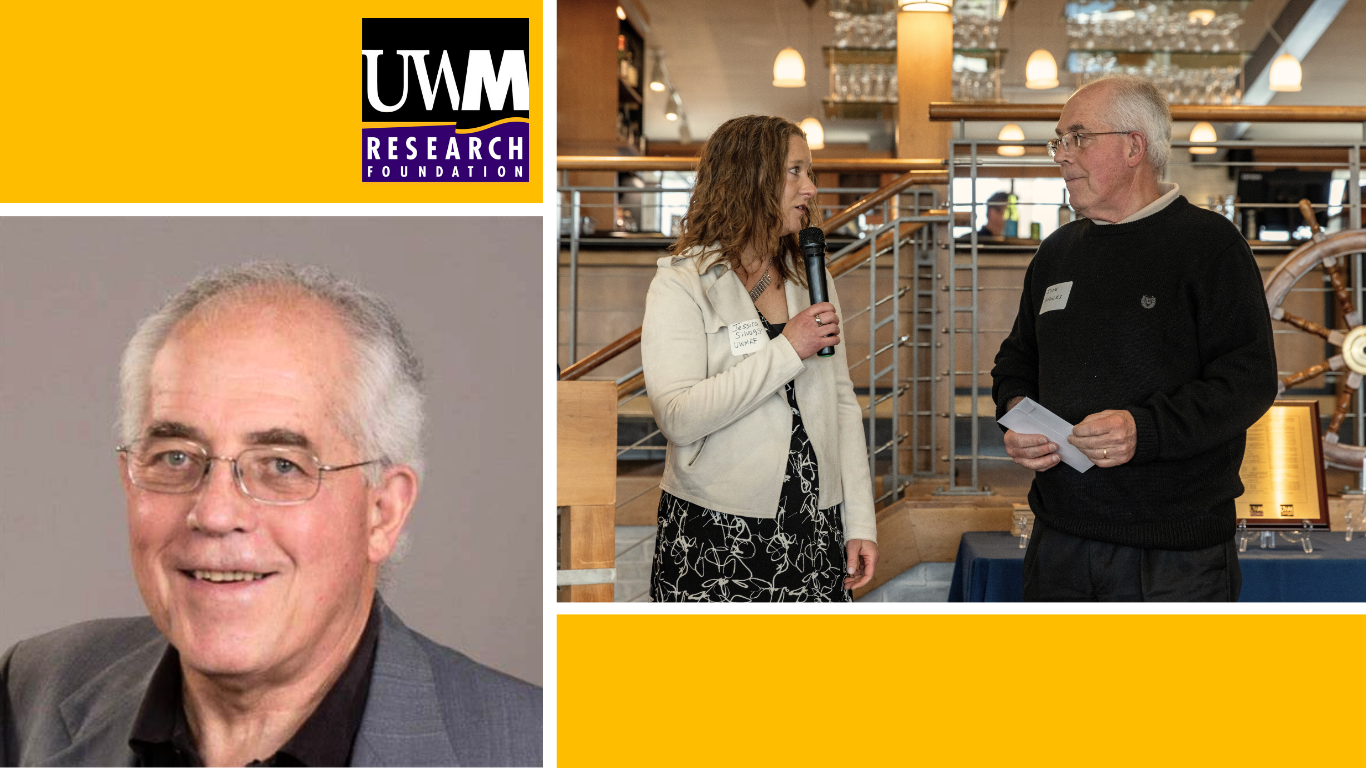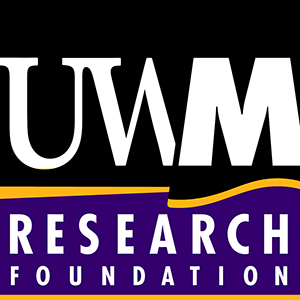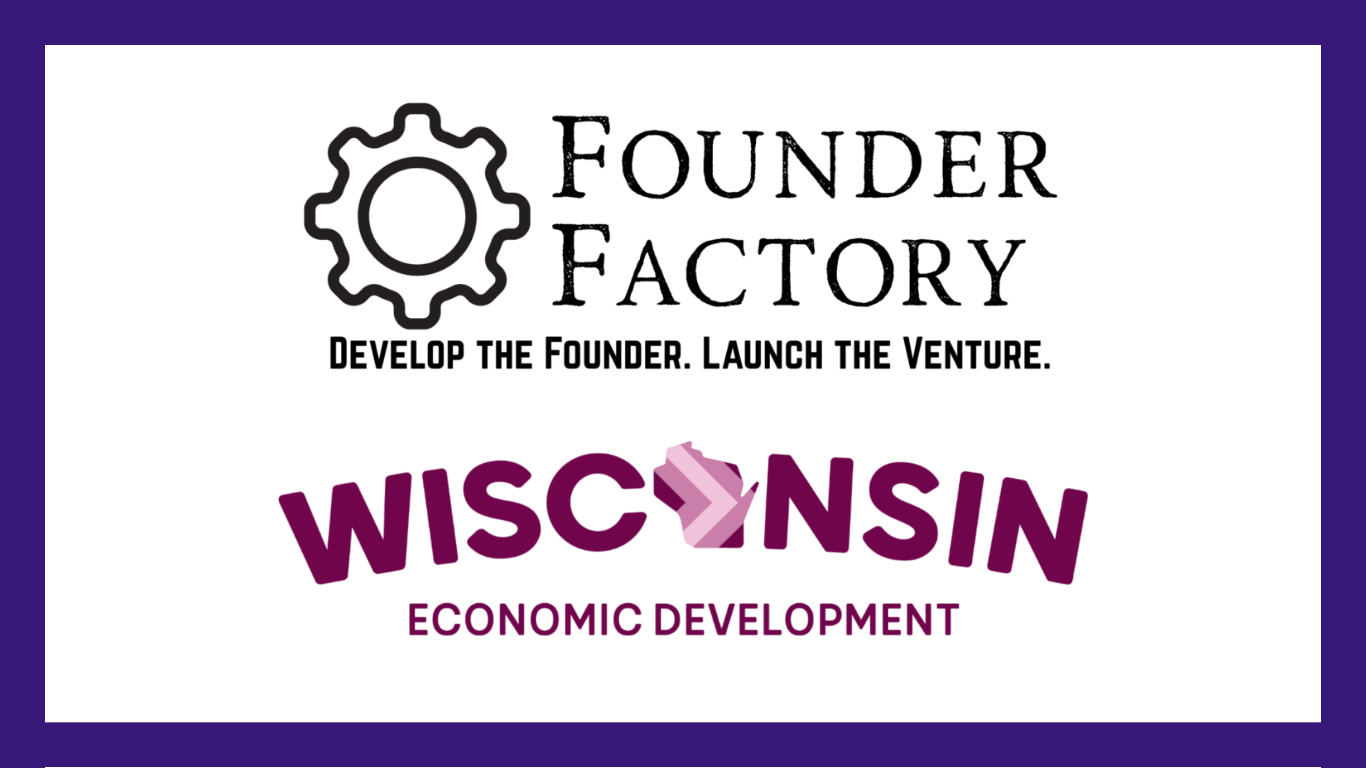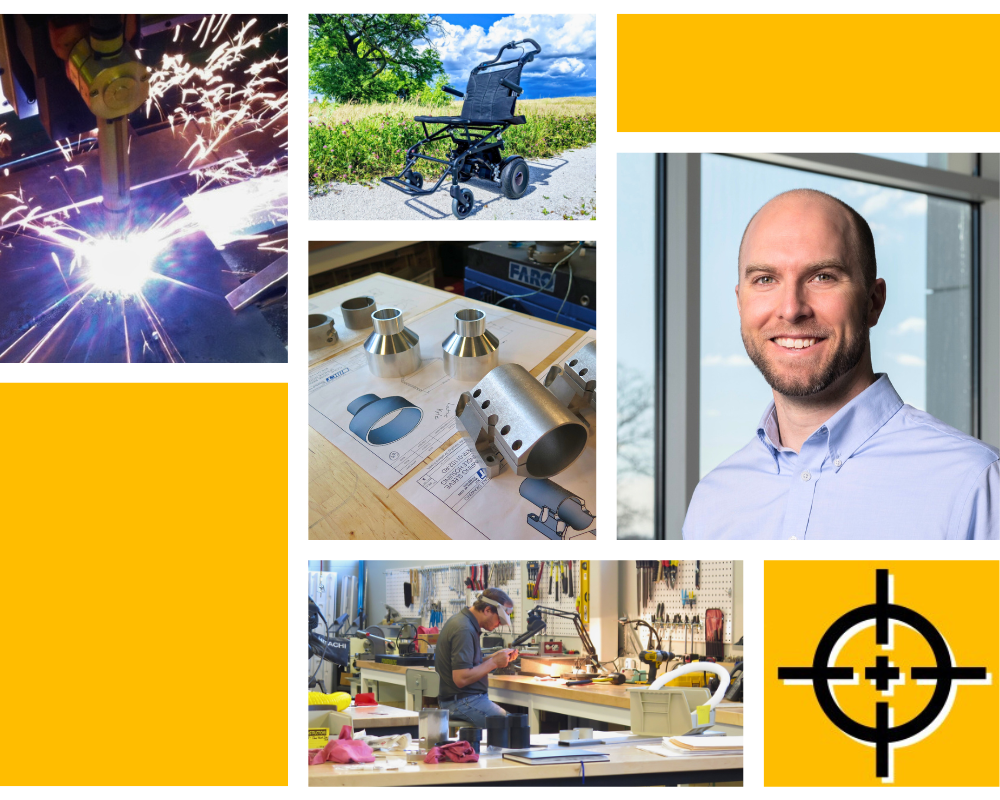
Mentor Spotlight: Jude Anders – Developing Products & People
The UWM Research Foundation’s ENGAGE Mentor Program connects experienced professionals with emerging innovators to accelerate ideas, build confidence, and foster entrepreneurial success. Through monthly meetings and speed mentoring sessions, ENGAGE offers bite-sized, accessible guidance that can make a lasting impact.
In this Q&A, we highlight Jude Anders, a longtime ENGAGE mentor whose career spans engineering, product innovation, and sustainable building practices. Jude brings decades of experience—from leading technical teams at Johnson Controls to mentoring early-stage startups at UWM. His thoughtful approach to mentorship reflects a deep commitment to developing both products and people. Read on to learn more about Jude’s professional journey, leadership philosophy, and the moments that continue to inspire his work with the next generation of entrepreneurs.
Could you share some highlights from your professional experience?
Perhaps my greatest strength is the breadth of experiences I can share. I began working in the mid-1950s—summer jobs to save for college—and built a long career across both labor and professional roles. After earning a BS in Engineering from Marquette University, I began my career at Honeywell. I then served in the U.S. Army’s Electronics Command, participating in the qualification testing of digital radio systems and learning the value of adaptability and listening to users.
After my military service, I earned an MS in Engineering from Marquette, specializing in control systems, and joined Johnson Controls’ new research team. Over the next 30 years, I led product design in digital controls, managed engineering teams, and drove operational excellence. I supported initiatives in data center services and building systems, fostering an entrepreneurial mindset. An MBA in Marketing from UW–Milwaukee helped me bridge technical innovation with strategic business thinking.
Since retiring in 2004, I’ve consulted on sustainable building practices, served on the U.S. Green Building Council, and mentored the next generation of innovators, with a continued passion for developing both products and people.
How has your previous experience shaped your leadership style, and how does that influence your approach to mentorship in this role?
Throughout my career, I prioritized collaborative teamwork to achieve shared goals. In leadership roles, I focused on helping individuals set goals that supported broader objectives. To me, leadership means supporting team members in reaching their full potential. I see mentorship as a natural extension of leadership—supporting others in their growth and success.
What made you interested in being a mentor?
In Fall ’65, I was beginning my second year as an engineering student. Tom, a freshman, had heard I was willing to help others with classwork. He approached me, struggling with one of his engineering courses. Although he had always wanted to become an engineer, he was considering leaving school, doubting his ability to succeed. He was an “A” student but couldn’t grasp the material.
We spent about 45 minutes discussing technical engineering problems, and I offered some encouragement. It struck me that Tom was experiencing freshman jitters. I often wondered if that short session helped—until 30 years later, when I was called to the Customer Demonstration Center at Johnson Controls. A customer refused to speak to anyone until he met with Jude Anders. It was Tom. He wanted to thank me for taking the time to help him. That 45 minutes meant a lot.
Tom went on to earn his engineering degree, build a successful consulting firm, and become a nationally recognized contributor to his professional field. The lesson I learned: a small kindness today can have a lasting impact. Tom’s success was his own, but I was honored to have played a small part. I approach every mentoring experience as having that same potential for doing good.
What motivates you to succeed as a mentor?
My engagements with the entrepreneurial community at UWM are primarily with early-stage startup teams. Some are intent on launching a new business, while others participate in competitions or programs as part of their extended educational experience. I enjoy working with both groups. Each faces challenges in understanding their potential customers’ needs, navigating the business ecosystem, and applying best practices that can lead to startup success. My motivation comes from witnessing their moments of learning and growth during our time together.
Share an example of how your mentorship helped an innovator move the ball forward on their project.
Early in my mentoring journey, I took a very hands-on approach—guiding innovators through multiple stages of the entrepreneurial process. Over time, I’ve learned that even brief interactions can spark meaningful progress. Sometimes, a single insight or suggestion is enough to shift perspective or unlock momentum. That’s why I value ENGAGE monthly meetings and speed mentoring sessions. We aim to make mentorship feel approachable, accessible, and impactful.
For example, I once worked with an innovator in energy systems who developed a promising industrial application for forklifts. While the product was strong, his target customers couldn’t afford the upfront cost. Drawing on my experience at Johnson Controls, I suggested a performance-based contract model. This allowed the product to be offered as a service, shifting the cost from capital expenditure to operational expense. That simple change dramatically improved his business model—making it more flexible for customers and easier to implement without budget overhauls.
Tell us a little about yourself outside your professional lens.
Family has always been at the heart of everything. My wife Paula and I have been a team for 59 years, raising two sons and sharing life’s ups and downs. For 15 years, before our sons went to college, we were deeply involved in the Bavarian Soccer Club. Paula was the lead Kool-Aid mom, and I coached from the under-8s through under-17s.
These days, we enjoy local road trips and stay active through gardening. Our yard blooms from spring through fall, and I grow vegetables to share with neighbors. I even built a greenhouse to meet my personal challenge of harvesting something every month—last February, thanks to a mild winter, parsley saved the day with enough for a few salads!
Any words of wisdom for the entrepreneurial world?
The lessons learned through entrepreneurship are powerful—whether you’re launching a startup or innovating within an established business. And what better time to learn those lessons than at UWM, where resources and support are readily available? Opportunities like ENGAGE allow students and faculty to explore entrepreneurial interests. The mentors—many of whom are experienced innovators—offer their time and insights freely to help startup teams. If you feel the urge to begin your startup journey, don’t hesitate to ask!



